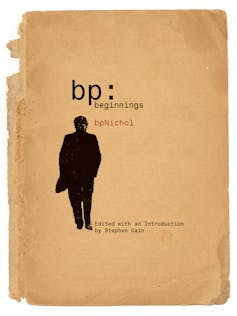By Jody Mason
As a book buyer or reader, you may have recently encountered the new literary imprint Strange Light — a project spun off from the hugely successful digital literary magazine Hazlitt.
Although the fact of its ownership is muted, Hazlitt magazine and the new “indie” Strange Light are both owned by Penguin Random House. Penguin and Random merged in 2013 to become Canada’s largest book publisher and the world’s largest trade book publisher. Seventy-five per cent of the shares of Penguin Random House are owned by Bertelsmann, a German multinational media corporation.
Instead of its corporate identity, the magazine’s mission emphasizes its open, experimental, creator- and reader-driven environment.
“Hazlitt is a home for writers and artists to tell the best stories about the things that matter most to them … Hazlitt is … humane, diverse and committed to stories and writers not heard anywhere else.”
Random House Canada launched Hazlitt as part of its digital strategy in 2012. According to Brad Martin, then president of the company, the goal was to use websites for more than just the traditional purposes of sales and marketing.
In 2012, digital self-publishing ventures such as Amazon Kindle Direct loomed large. As Canadian journalist John Barber noted in an article on Hazlitt in 2012, Random House Canada’s forays into digital publishing constituted an effort to stay relevant — and profitable — at the edge of a “frontier pioneered by innovative outsiders.”
The publishing sector has only grown in size since then, as the previously unthinkable success of startups such as Canada’s Wattpad attests.
Strange Light
This year, Penguin Random House Canada launched the Hazlitt imprint Strange Light, a project dedicated to the work of “unpredictable, innovative authors telling personal and provocative and experimental stories, even — and especially –– those that defy easy categorization.”
Strange Light’s debut title, Sara Peters’s I Become a Delight to My Enemies, mixes poetry and prose. In a literary field utterly dominated by prose fiction — the novel — this is indeed “innovative” and “experimental.”
The embrace of generic diversification at Penguin Random House can only be a good thing. Regarding this embrace, however, we might hold our collective breath.
Strange Light plans to release two memoirs, a work of literary non-fiction, and a novel in 2020. Where is the poetry? The prose poem? The graphic novel?
Book buyers in Canada choose novels over poetry. According to Book Net Canada’s statistics, fiction represented just under 30 per cent of all unit sales of books in Canada in 2016. By contrast, poetry represented less than one percent.
Yet even if it could make Canadians read more poetry and mixed genre work, would Strange Light work to serve the diversification of Canada’s literary field, as its mission statement suggests?
Experimental stories
When thinking about how to introduce experimental stories and diverse points of view to readers in Canada, the primary issue is not one of genre or form. It is also not exclusively a question of publishing writers from a diversity of cultural backgrounds. Both of these factors matter, but they relate to a larger one.
The main issue is a question of ownership. According to the Book Net Canada statistics for 2016, 95 per cent of fiction, non-fiction (including poetry), young adult and juvenile books sold in Canada were published by foreign-owned publishers.
Penguin Random House Canada is the biggest of these, followed by HarperCollins Canada. Together, these two companies dominate literary publishing in Canada. According to investigative journalist Elaine Dewar, Penguin Random House Canada had cornered 32 per cent of the Canadian trade book market in 2016.
We do not have a diverse literary ecosystem in Canada; its diversity has shrunk rapidly in the past two decades. Two recent accounts amply demonstrate a narrowing of Canada’s publishing activity: Rowland Lorimer’s Ultra Libris analyzes the role of cultural policy in this process, while Elaine Dewar’s The Handover, reveals how “The Canadian Publisher” McClelland & Stewart was sold to Random House despite foreign investment rules that should have prevented it.
Resilience of small houses
Since at least the early 1970s and the introduction of the Canada Council’s block grants to Canadian-owned publishers who are actively producing and marketing Canadian books, a modest small-press ecology has managed to survive in this country.
Publishers such as Kentville, Nova Scotia’s Gaspereau Press; Windsor, Ontario’s Biblioasis; and Penticton, British Columbia’s Theytus Books bring Canadians books that would not otherwise see the light of day.

Although now fairly well known as Michael Onddatje’s first publisher, Toronto’s Coach House Books might also be remembered for its early forms of experimentation. The house made its mark in 1967 with b.p.nichol’s Journeying & the Returns, a slim volume in a blue and purple cardboard case that also contained assorted objects to be experienced alongside the poems, including a thumb-flip poem the size of a stack of sticky notes.
More recently, Québec’s Mémoire d’encrier offers us the unique poetry of Joséphine Bacon: French and Innu-aimun sit on each twinned page, giving the reader access to a language few in Canada have any opportunity to encounter.
Perhaps there is room for many different kinds of initiatives committed to boundary-pushing books in Canada’s literary field.
I hope that is the case. But do not be fooled: despite its rhetoric of innovation and experimentation, the indie-style imprint Strange Light is brought to us by a company that is already dominating the country’s literary space and that is clearly not indie.
This is one more sign of the desertification of our media ecology, not its diversification.
This article is republished from The Conversation under a Creative Commons license. Carleton University is a member of this unique digital journalism platform that launched in June 2017 to boost visibility of Canada’s academic faculty and researchers. Interested in writing a piece? Please contact Steven Reid or sign up to become an author.
All photos provided by The Conversation from various sources.
![]()
Tuesday, September 10, 2019 in The Conversation
Share: Twitter, Facebook



